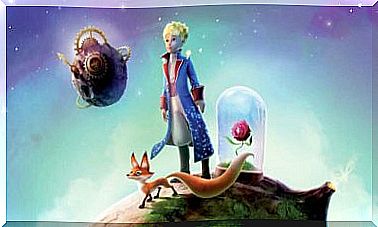Naturalistic Intelligence: What Is It?

Thanks to the psychologist and pedagogue Howard Gardner, we discovered that there is not just one type of intelligence, but eight! Before his theory of multiple intelligences, the focus was solely on logical-mathematical and linguistic intelligence (especially in schools and in evaluations of the IQ). Fortunately, today we know that there are many more; one of these is precisely naturalistic intelligence.
This type of intelligence concerns our ability to relate to the environment and its elements. It allows us to observe nature, understand it, classify it and organize it, and it also allows us to establish relationships between its elements (flora and fauna, for example).
It is certainly one of the least known intelligences and, above all, one of the least appreciated at the academic level. Nonetheless, as we shall see, it was essential for our ancestors to better understand their environment, hence to survive. Find out the details and curiosities in this article!

Naturalistic intelligence: what is it?
Naturalistic intelligence is part of the theory of multiple intelligences proposed by the psychologist and pedagogue Howard Gardner (United States, 1943) developed and spread in the 1980s. Specifically, the theory is dated 1983, but it wasn’t until 1995 that naturalistic intelligence was added to the model.
What does the concept of naturalistic intelligence refer to? The ability to classify the elements of the environment by recognizing their differences and how they relate to each other in order to use this information to interact with the elements in a positive way.
On the other hand, this intelligence favors our interaction with the environment. The latter concept embraces the urban, suburban and rural context, not just natural.
Goal: survival
Naturalistic intelligence is probably the one that most helped our ancestors to evolve, to adapt to the environment, to exert a certain influence on it and, ultimately, to survive. For all these reasons, some experts date its origin to the Paleolithic era.
Beyond survival, today this intelligence allows us to better understand nature and elaborate hierarchies within natural systems that are very useful in various fields of knowledge (for example in biology).
Famous people with naturalistic intelligence
Which characters were endowed with a high naturalistic intelligence? To name a few, the naturalist scientist Charles Darwin (Shrewsbury, 1809 – Down House, 1882), or the geographer and naturalist Friedrich Heinrich Alexander (Berlin, 1769 – 1859).
These authors were able to delve into natural environments and learn from them, identifying their animal and plant species, learning their specific characteristics and using the information obtained for personal and social benefit. Naturalistic intelligence is just that.
Specific characteristics
In Gardner’s definition of naturalistic intelligence, much emphasis is placed on the type of information processed by this intelligence (and not so much on what is done with that information). Above all, the specific contents that can be processed through this intelligence should be highlighted.
These contents refer, as we have said, to the elements of nature, to the anatomical characteristics of each plant and animal we observe, etc. Thus, we will activate naturalistic intelligence in the presence of a natural environment or in a space with different forms of life.
Cognitive processes involved
What cognitive processes are activated when we use naturalistic intelligence? Mainly observation skills, selective and sustained attention, classification and categorization, inferences and identification of relationships, formulation of hypotheses related to the environment.
On the other hand, it is a type of intelligence that allows us to experiment and orient ourselves towards nature, which in turn can help us to know it better and value it more.
To put it in more philosophical terms, naturalistic intelligence is also linked to the appreciation of beauty and love for the environment.

Can it integrate with other intelligences?
Naturalistic intelligence could in some cases overlap with other intelligences proposed by Gardner. This is the case with linguistic intelligence. Is it not true that we use this latter type of intelligence to conceptualize the elements identified also in nature?
On the other hand, logical-mathematical intelligence allows us to understand the hierarchies and categorizations that we have developed thanks to naturalistic intelligence.
Finally, to give another example, spatial intelligence could be useful for us to apply all the knowledge “obtained” thanks to naturalistic intelligence, to a specific environment and in real time.
In short, naturalistic intelligence is not the best known, but it is undoubtedly one of those that most influenced our ancestors in terms of survival and adaptation to the environment. A curious fact: although many brain areas are involved in this faculty, it is believed that the right hemisphere is more decisive than the left.









